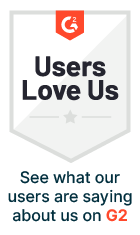
In today’s digital landscape, data has been hailed as “the new oil” – a valuable resource powering innovation, growth, and competitive advantage. As businesses navigate through the complexities of the modern market, the ability to harness data effectively has become paramount.
Today, we explore the importance of building a robust data foundation. As well as creating products and services to cultivate a data-driven culture within organisations.
The Strategic Imperative: Why a Data-Driven Culture Matters
A data-driven culture isn’t just a buzzword; it’s a strategic imperative for businesses looking to thrive in an increasingly competitive environment. Organisations that embrace data-driven decision-making consistently outperform their peers. This is because they are leveraging insights to drive innovation, improve operational efficiency, and enhance customer experiences.
Moreover, in an era defined by rapid digital transformation, data serves as the linchpin connecting disparate facets of business operations. As a result, it enables agility and adaptability in response to evolving market dynamics.
A classic data-driven success story is Netflix. The popular streaming service heavily relies on data to drive its decision-making processes, from content creation to user interface design.
By analysing viewer data, Netflix can identify trends, preferences, and viewing habits. This information helps them create and promote content that resonates with their audience.

For instance, the recommendation algorithm suggests personalised content based on individual user preferences, leading to increased user engagement and retention. This data-driven approach has contributed to Netflix becoming one of the leading streaming services globally.
Defining a Data Foundation for SaaS
For Software as a Service (SaaS) companies, establishing a robust data foundation is particularly crucial. The very nature of SaaS products generates vast amounts of data, encompassing user interactions, product usage patterns, and performance metrics.
A well-defined data foundation provides the framework for collecting, storing, analysing, and deriving actionable insights from this wealth of information. As a result, it empowers organisations to optimise product development, refine customer targeting strategies, and drive revenue growth.
Building a robust data foundation is crucial for SaaS companies to effectively harness data for decision-making and product development.
Here are some key areas to consider:
Infrastructure: This includes the hardware, software, and network infrastructure needed to collect, store, and process data efficiently. For SaaS companies, cloud-based infrastructure solutions like AWS, Google Cloud Platform, or Azure are often preferred. This is due to their scalability and flexibility.
Analytics tools: SaaS companies require advanced analytics tools to derive insights from data. These tools may include data visualisation platforms, business intelligence software, and machine learning algorithms. Choosing the right analytics tools ensures that data can be analysed effectively to inform business decisions.
Data governance: Data governance encompasses the policies, processes, and standards for managing data throughout its lifecycle. It involves defining roles and responsibilities, establishing data quality standards, and ensuring compliance with regulations such as GDPR or CCPA. Implementing robust data governance practices helps maintain data integrity and trustworthiness.
Data quality: High-quality data is essential for accurate analysis and decision-making. SaaS companies must invest in data cleansing, validation, and enrichment processes to ensure that data is accurate, complete, and consistent.
Accessibility: Data accessibility refers to the ease with which users can access and retrieve data. SaaS companies should implement data democratisation practices. This means they’ll be providing employees with self-service access to relevant data while ensuring proper security controls are in place.
Security: Protecting sensitive customer data is paramount for SaaS companies. This involves implementing robust cybersecurity measures. Such as encryption, access controls, and regular security audits to prevent data breaches and unauthorised access.
Scalability: As SaaS companies grow, their data infrastructure needs to scale accordingly to accommodate increasing data volumes and user demands. Choosing scalable infrastructure solutions and adopting technologies like containerization and microservices architecture can facilitate seamless scalability.
Future-proofing: Anticipating future data requirements and technological advancements is crucial for building a sustainable data infrastructure. SaaS companies should stay abreast of emerging technologies and industry trends. At the same time as designing their data architecture in a modular and flexible manner to adapt to future changes without significant disruptions.
Creating Data-Centric Products & Services
In the age of data abundance, successful companies are leveraging data not only as a means of understanding their customers but also as a fundamental component of their products and services.
They are doing this by embedding analytics capabilities directly into their offerings. As a result, businesses can provide customers with real-time insights and actionable intelligence, enhancing value propositions and fostering long-term loyalty. From predictive analytics to personalised recommendations, data-centric products and services have become a cornerstone of competitive differentiation in the digital marketplace.
Here are two more examples of data-driven product success:
Amazon:
The e-commerce giant has been leveraging data analytics and gathering insights into customer behaviour, preferences, and purchasing patterns across its vast online marketplace.
This data allows Amazon to optimise its product offerings. This means they can tailor recommendations and promotions to individual shoppers based on their browsing and purchase history.

Amazon also uses data to dynamically adjust pricing, identify trends, and forecast demand. Ensuring that products are priced competitively and inventory levels are optimised.
Additionally, Amazon’s data-driven approach extends to its supply chain and logistics operations. This is where real-time data analysis helps streamline processes, reduce shipping times, and minimise costs. By leveraging data across various aspects of its business,
By having a data-driven culture Amazon can enhance customer satisfaction, drive revenue growth, and maintain its position as a leading e-commerce platform globally.
Spotify:
The streaming entity is the leading music streaming service and relies heavily on data analytics to understand user preferences. As well as improve recommendation algorithms, and tailor its offerings to individual tastes.
Spotify collects extensive data on user listening habits. This includes the genres, artists, and songs they enjoy, as well as factors such as time of day and mood.

By analysing this data, Spotify can generate personalised playlists, recommend new music, and curate content that resonates with each user’s preferences.
Moreover, Spotify uses data-driven insights to optimise its user interface, improve user engagement, and enhance the overall listening experience. For example, Spotify’s “Discover Weekly” and “Daily Mix” playlists leverage machine learning algorithms to deliver personalised music recommendations to users based on their listening history and preferences.
Overcoming Challenges: Building a Data-Driven Culture
Building a data-driven culture comes with its challenges. For instance, overcoming resistance to change and ensuring that employees at all levels possess the necessary data literacy skills.
To address these obstacles, organisations can implement strategies such as providing comprehensive training programs. These will enhance data literacy across the workforce. This involves not only technical training on data analysis tools but also educating employees on the importance of data in decision-making. As well as how to interpret and apply data effectively in their roles.
Additionally, they can foster a culture of continuous learning and experimentation. This encourages employees to explore data-driven approaches and rewarding innovation in data use. By creating a supportive environment that values data literacy and promotes knowledge sharing. This means organisations can overcome challenges and cultivate a robust data-driven culture.
Implementing Data Governance for Sustainability
However, the efficacy of a data-driven culture hinges on more than just data availability. It requires a solid foundation of data governance. Data governance encompasses the policies, processes, and controls that ensure the quality, integrity, and security of organisational data throughout its lifecycle.
By implementing robust data governance frameworks, SaaS companies can mitigate risks associated with data breaches, regulatory compliance, and privacy concerns. All while fostering trust and confidence among customers and stakeholders.
Empowering C-Level Decision-Makers with Data
Ultimately, the true value of a data-driven culture lies in its ability to empower decision-makers at all levels of the organisation with actionable insights. From frontline managers to C-suite executives. Access to timely and relevant data enables informed decision-making, driving strategic initiatives and fueling business growth.
By democratising data access and promoting a culture of data literacy, SaaS companies can unlock the full potential of their workforce. As a result, they’ll foster innovation and drive competitive advantage in the digital economy.
Decisions can finally transition from relying on “faith” to being firmly grounded in “fact”.
Conclusion: data-driven culture is the future of products & services
Building a data foundation and creating products and services to enable a data-driven culture is not merely an option. It’s a necessity for organisations looking to thrive in today’s fast-paced, data-driven world.
By embracing data as a strategic asset and investing in the necessary infrastructure, SaaS companies can unlock new opportunities for innovation, growth, and customer value creation.
As we look towards the future, one thing is clear: the organisations that succeed will be those that harness the power of data to drive meaningful change and create lasting impact in the marketplace.
